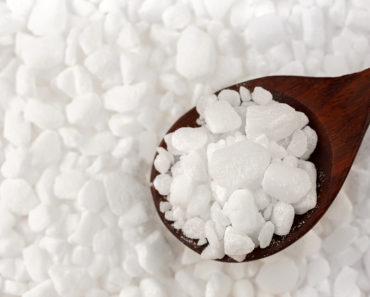Refilling the salt in your salt-based water softener is an important aspect of regular maintenance. The brine solution used in these systems washes away the hardness minerals and regenerates sodium-charged resin beads, which are required for the water softening process.
If your salt brine tank runs low, you must refill it as soon as possible. Water softener salts of various forms, including crystals, salt pellets, and potassium chloride, are typical. But which type should you pick? Salt pellet or potassium chloride pellets?
To address those questions, let’s look at each sort of water softener salt and which situation it performs best in.
What Is the Difference Between a Salt and a Potassium Chloride Softener?
In most cases, the best water softeners are those that use salt from the market. That implies no dicing, table salts, or any other sort of salt.
When it comes to salt, most water softeners only accept either sodium chloride (crystals, pellets, and block salt) or potassium chloride.
The type of salt you use may have an impact on the efficiency of your water softener and regeneration process. It can also influence the quantity of sodium that enters your softened water, the price of salt adjustments, and how often your brink tank needs to be cleaned.
Let’s get into the nitty-gritty of each type of water softening salt.
Sodium Chloride (Salt)
Sodium chloride is the chemical name for salt. The three types of sodium chloride are granules, crystals, and block salt. Apart from being readily accessible in a number of forms, sodium chloride is widely used since it is cheaper and more efficient.
Here’s a quick rundown of the various alternatives:
Rock Salt
Rock salt, often known as “dried” salt, has a similar appearance to tiny pebbles or rocks. It is dug up from the ground and arises when salt deposits accumulate. Rock salt is the rawest variety of salt on the list, implying that the salt crystals may contain other materials from the process. Despite being more cost-effective, rock salt contains a high amount of calcium sulphate.
Solar Salt
Solar salt (also known as “sea salt”) is a byproduct of evaporated seawater. When the sun dries out the highly saline seawater, it naturally forms this sort of salt. It’s 99.6 per cent pure and even more soluble than rock salt. That means it dissolves much faster than other types of water softener salts. If your system has an excessive amount of mineral build-up, “mushing” or “bridging,” you may want to try using this type of salt. Using this sort of salt can help your softener last longer and require less regular maintenance.
Evaporated Salt Pellets
The finest form of sodium-based salt for softening water is evaporated salt, which is also the purest type. And, as you might guess, it’s the most costly item on this list. When raw salt is transformed to sodium chloride and all moisture is removed, this type of salt forms. The remainder of the process produces 100 per cent pure salt. Evaporated salt pellets are extremely efficient at treating hard water and making it softer since they’re in a completely pure condition.
Block Salt
Sodium chloride is not a good salt for water softeners due to its high concentration of magnesium and other minerals. Some producers add a bonding agent to the salt in order to create the blocks, which just adds more impurities to the mix. As a result, we do not suggest it.
Potassium Chloride
Potassium chloride is a wonderful salt (sodium chloride) substitute, especially since it is completely sodium-free. While this makes it ideal for people on a diet, those with hypertension or a family history of the disease should avoid potassium chloride. Furthermore, potassium chloride pellets are more costly and harder to come by than salt pellets.
If you’re considering switching from salt to potassium chloride pellets, you’ll have to raise the salt dosage programming on the valve by about 10% in order for the system to rejuvenate properly.

